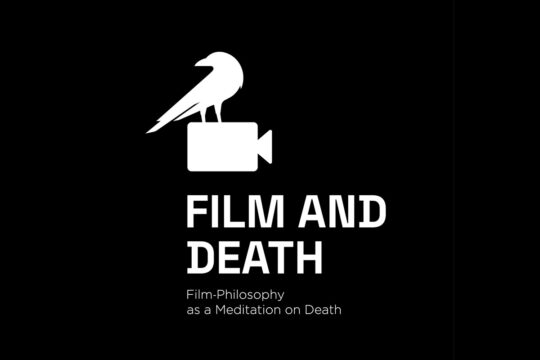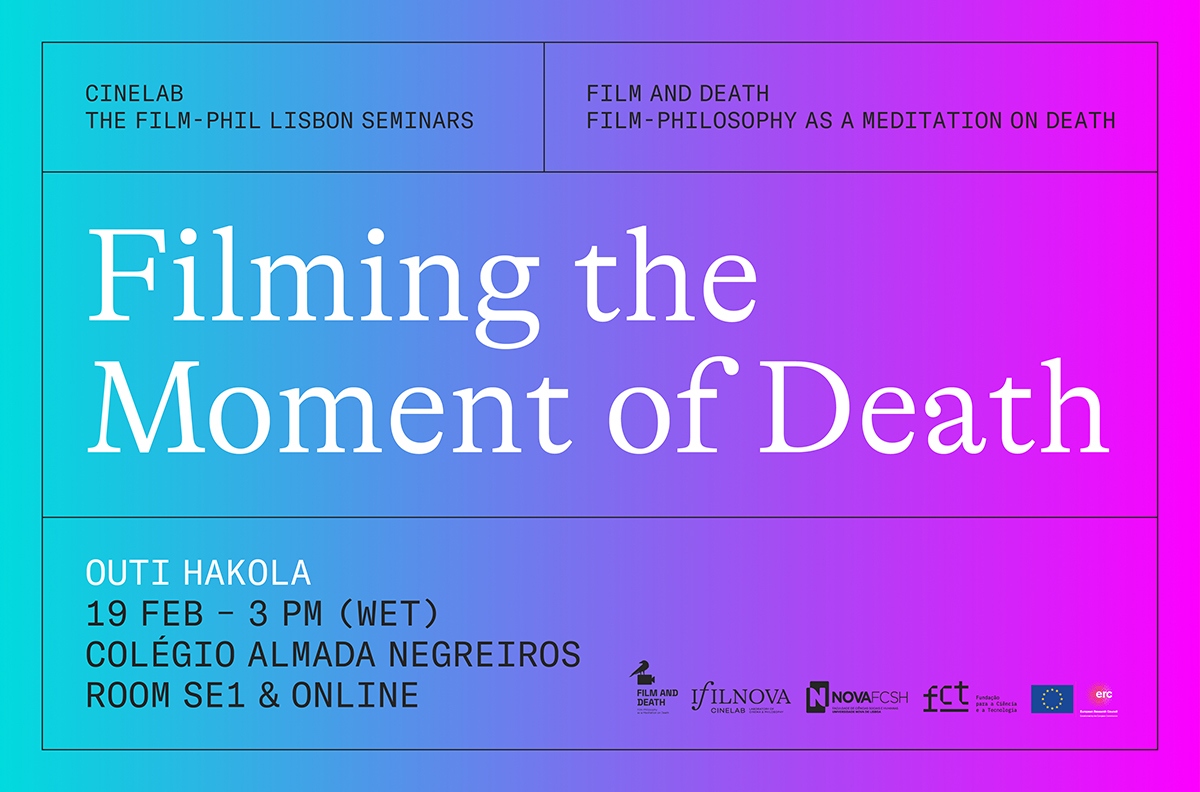
Outi Hakola | Filming the Moment of Death
O próximo seminário Film-Phil de Lisboa estará a cargo de Outi Hakola (Universidade Oriental da Finlândia), que falará sobre “Filming the Moment of Death”. A sessão será em inglês e terá lugar no dia 19 de fevereiro de 2025, às 15h00 WET / 17h00 EET, na sala SE1 do Colégio Almada Negreiros e online, via Zoom.
A série de seminários faz parte do projeto ERC “CINEMA E MORTE — A Filosofia do Cinema como uma Meditação sobre a Morte” (CineLab / IFILNOVA). O seminário será híbrido. Para receber mais informações sobre como participar na reunião online, é obrigatório registar-se aqui.

ABSTRACT
In film theory, a persistent argument states that documentary films cannot portray the moment of death. From a realism perspective, films fail to represent real death which is a unique metaphysical event. From a phenomenological viewpoint, an inanimate corpse cannot enable embodied connection for viewers’ experience. And, from a technological perspective, a medium that is based on hearing and seeing cannot reach the multisensory experience of death. I approach this argument that death remains beyond documentary cinema from the perspective of ethical and aesthetic experience. Death is one moment that the viewer has no personal experience of, but one that they can witness through others. By inviting viewers to open up to experiences they have not undergone themselves films create ethical potential for novel ways of thinking and feeling. I analyze the deathbed scenes in the documentaries “Dying at Grace” (dir. Allan King, 2003) and “Island” (dir. Steven Eastwood, 2018) to readdress the argument of death’s unrepresentability. I argue that the slow rhythm and framing of these scenes signify the specificity of this moment and enable an ethical encounter with the dying person. This encounter, at its best, provides an embodied experience, and potential for documentary cinema to address the moment of death.
BIO
Dr. Outi Hakola is a lecturer in the Department of Health and Social Management at the University of Eastern Finland. Her background is in film studies and her research concentrates on questions of death, dying, and health in audiovisual culture. Her most recent book “Filming Death: End-of-Life Documentary Cinema” was published by Edinburgh University Press in the spring of 2024.
